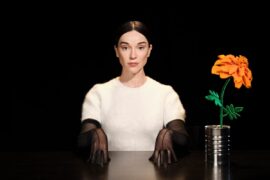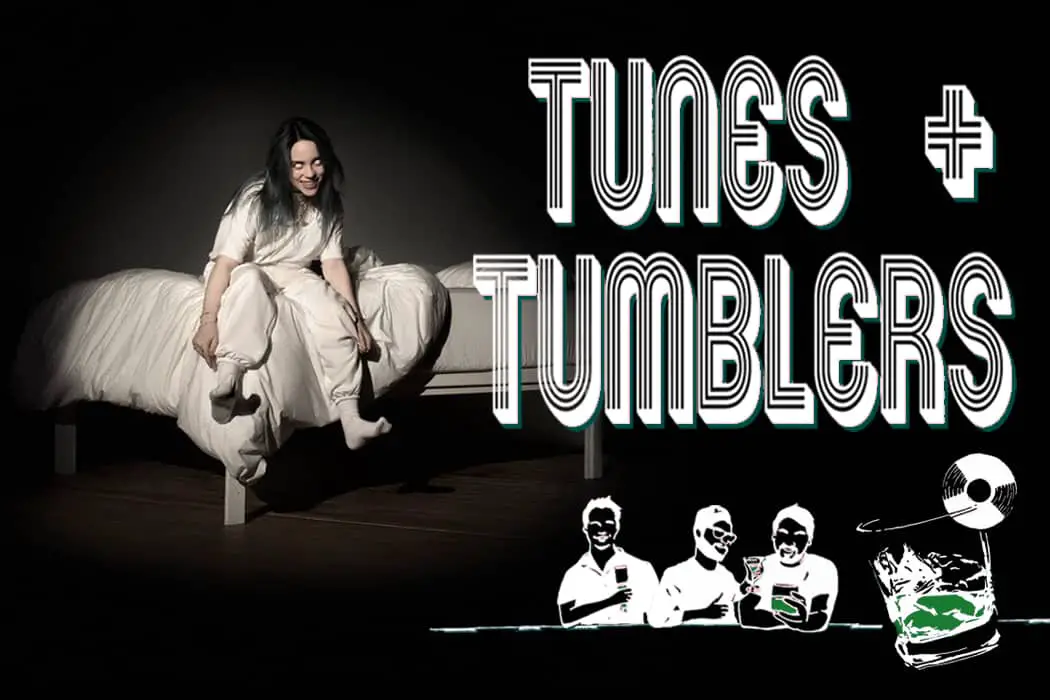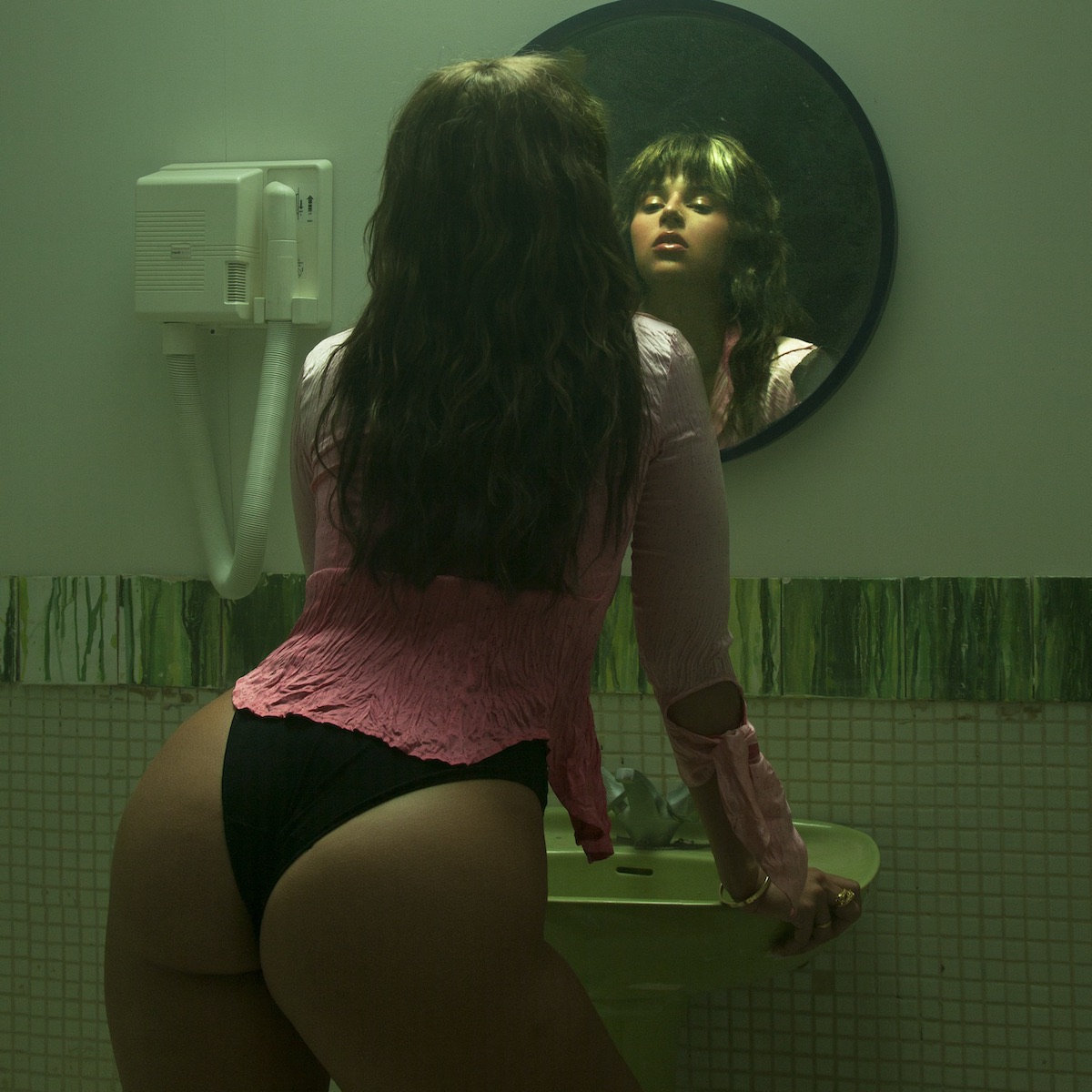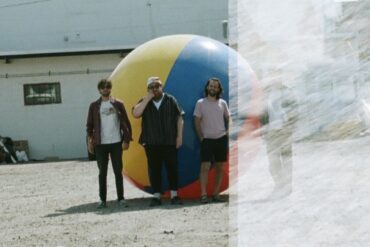With the release of Everything Everything’s 7th studio album ‘Mountainhead,’ frontman Jonathan Higgins discusses everything (everything) from the impending infiltration of AI into our lives and the current state of education to the band’s creative process and long-term goals.
Stream: ‘Mountainhead’ – Everything Everything
Everything Everything has been one of the most prolific and innovative groups of the 21st Century, with several awards and accolades including being short-listed for the esteemed Mercury Prize.
With 6 albums since 2010, Everything Everything have managed to evolve with the constantly shifting musical and technological landscape. Their last album, Raw Data Feel embraced the uncertainty and lack of humanity in our digital world, drawing lyrics from AI software, 4Chan posts, Confucius, LinkedIn’s terms and conditions and Beowulf verses.
Everything Everything is constantly innovating, making one-of-a-kind music that is unparalleled in a time when being original is harder than ever before. Their newest album Mountainhead, releases March 1st, 2024, and carries on the group’s musical and creative momentum.
Atwood Magazine had the pleasure of sitting down over Zoom with Jonathon Higgs in January to discuss Mountainhead, and to discuss the band’s creative process.
— —
:: stream/purchase Mountainhead here ::
:: connect with Everything Everything here ::
“Enter the Mirror” – Everything Everything
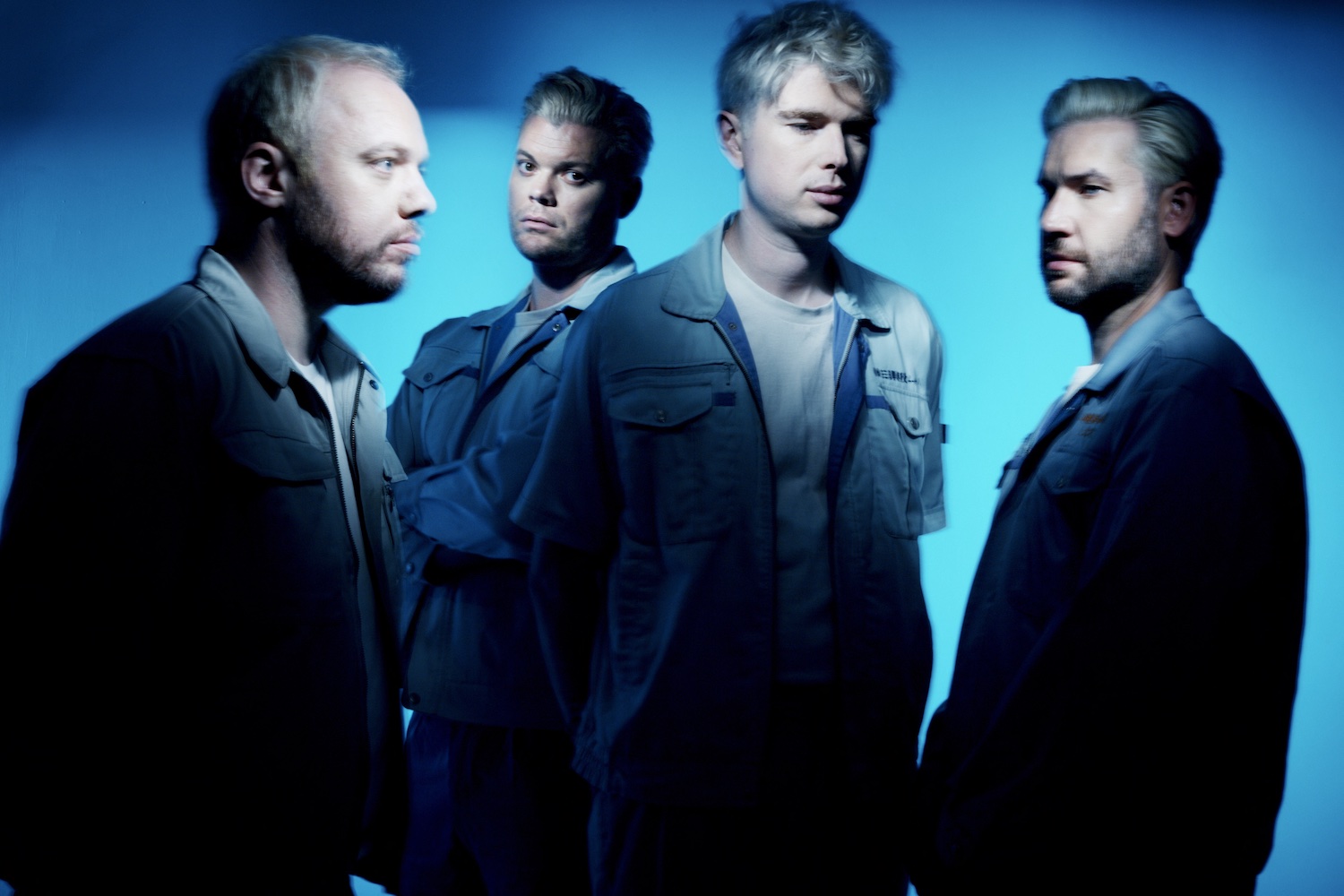
A CONVERSATION WITH EVERYTHING EVERYTHING

Atwood Magazine: Each album you all release has a unique style and theme. I read that Mountainhead draws from an allegory regarding “an alternate society whose existence is dedicated to endlessly growing a mountain by digging deeper at its foot — all in pursuit of a mythical mirror that sits atop its peak while avoiding a massive golden snake that lives in the pit below.” What are some of your favorite sci-fi films or novels?
Jonathan Higgins: Definitely Predator. Definitely Terminator. I like any sort of sci-fi slasher genre like that, like Alien where there’s people being picked off by a monster. It’s not very close to what I’ve written though, for this album. Yeah, I think I was looking for something that was simple enough to say in one sentence, but that could have a huge amount of different meanings if you wanted it to. I guess it would be something like, I don’t even know. It’s way too simple for a film
I think it would have to develop a hell of a lot more, but I think in terms of music, it’s sort of enough to hang everything off without it getting too complex and too bogged down with these rules of the world. It was more like, no, there’s just this big one, big idea and everything is sort of under the shadow of that rather than getting too conceptual kind of puts me off if particularly if albums get too wrapped up in detail and all that stuff. It’s fine for films or novels, it’s essential. But I think when you are making something like an album, the songs need to live without that knowledge. They need to be able to be good by themselves.
That’s why it has such a simple setup, because I think anything, I think you can go a bit further, but I want you to keep it really monolithic and simple.
You tackle some big issues in Mountainhead, like the unsustainability of unlimited growth and income inequality and Raw Data Feel tackled the problems associated with AI. Do you see AI helping or exacerbating these issues?
Jonathan Higgins: I think it’ll help a little bit. I don’t see why it would make things worse. It’ll probably be some big tech advances that it’ll help speed up things, like sustainability is the big one that everyone’s trying to do, so I don’t see how that could make things worse, but it does, of course, rely on some kind of thing. They keep mining for chips, right? I can’t remember. But there is quite a big environmental impact of making the brains of AI, and obviously we’ve seen with crypto what sort of length people will go to improve their computing power and how much energy that uses, et cetera, et cetera. But no, I think it’s probably going to help bring about some of the stuff that we need to happen a bit more quickly, like renewable, wherever that may be. Some kind of advancement will probably occur thanks to AI, but it’s not just a one solution type thing. It’s more like it just looks through the options much more quickly. That’s kind of how I feel about it.
It’ll be in ways that we don’t notice as well. I think a lot of it’s already happening in terms of the algorithms that the way we get information given to us is coming, is being decided by AI already. It’s saying you like that, so you’ll probably like this. And the people that didn’t like that did this, everything since Big Data has come along has slowly been creeping in anyway. But AI is going to make it much faster, I think. But I’m not an expert.
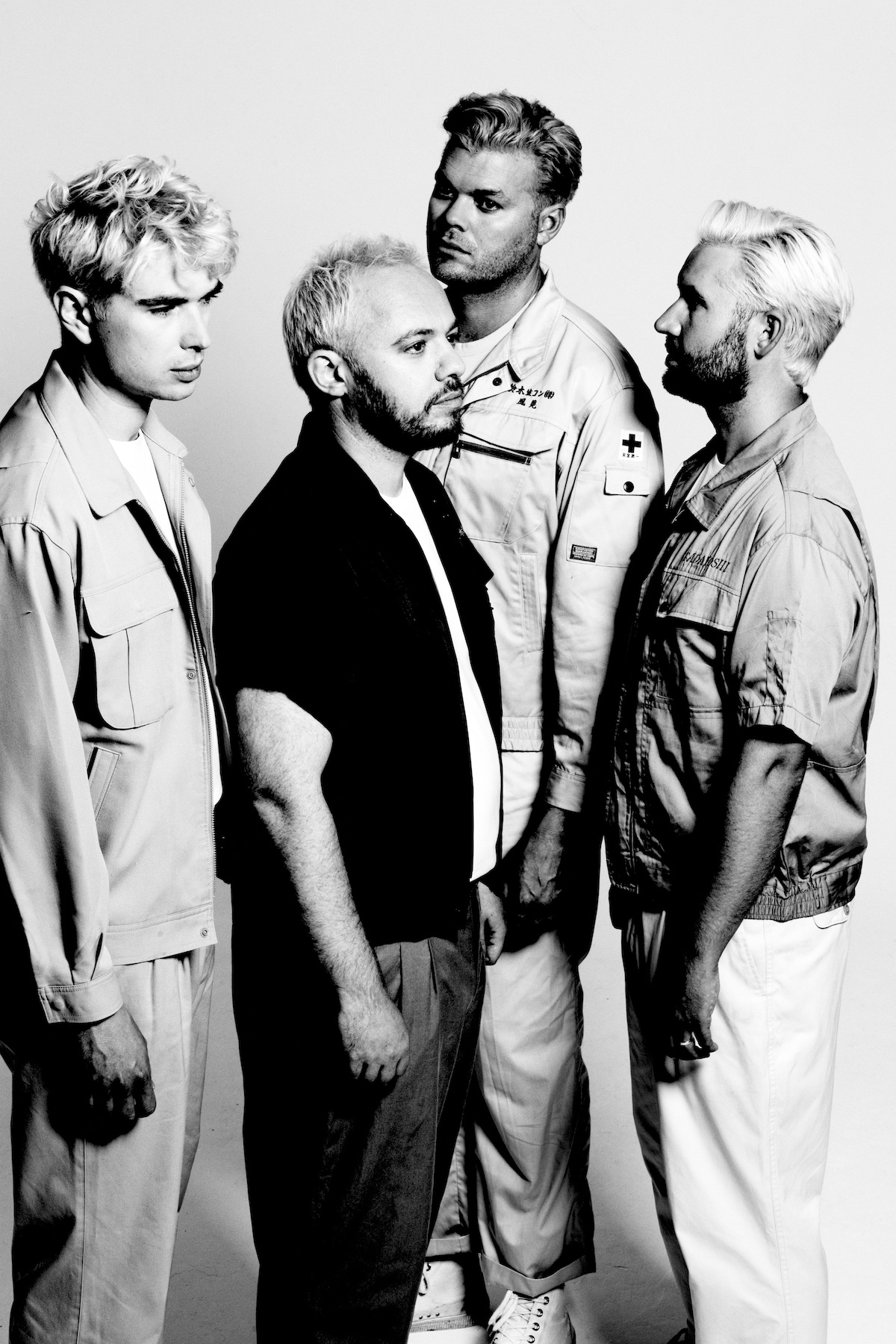
Genius suggests that the album’s title is a reference to the 1943 novel Fountainhead, with a theme of objectivism suggesting “the importance of living to benefit oneself as an individual, with conscious and deliberate disregard for the effects that your actions might have on others.” One of the standout tracks of the album, “Buddy, Come Over” repeats the lines “I still want to be the best,” possibly suggesting this to be true. Is there any credence to this suggestion?
Jonathan Higgins: It came up when I said I wanted to call the album this, and it is something I’m aware of. I’ve never read it. Obviously it’s Ayn Rand and it’s not entirely, well, I’m not saying a mountain head is a good thing. It’s quite funny. As soon as we put the title out, someone was saying, I’m a mountain head, I’m going to get this tattooed on me. And I was like, whoa, there. You don’t know what a mountain head is yet. You just know that that’s the name of this record. Obviously they went ahead with it anyway, but it doesn’t hurt that it’s got this Fountainhead connection because the type of thing I’m talking about actually fits pretty well into that world. It’s more like a happy coincidence. And as I say, it’s not really coming down on either side of it in terms of is it a good thing? It’s just kind of saying there are people out there, these mountain heads in this imaginary world, which is another step of removing culpability. I’m like, imagine if there was a world, and imagine if there were people in it that acted like this when really I’m saying there are lots of them, obviously. So yeah, that’s kind of a happy coincidence really. It’s one that didn’t hurt.
Mountainhead, as well as your previous projects, is a blend of unrelenting and thought-provoking creativity while still being sonically pleasing for the casual listener, what goes into the creative process for designing a concept album? Does it start with a pen and paper or does it start when you are all together in the studio?
Jonathan Higgins: Well, it’s always going to be music first. So I mean, I’d started to think about something like the concept of Mountainhead. Yeah, probably before I’d written any music. But thinking about that stuff doesn’t really come into the nuts and bolts of the music. It’s not like we’re doing Graceland, where we are going to study African music and then see if we can put some changes into the music. No, I’ve got this idea. And then separately I want to write some good songs and then I’ll put some of the ideas of the songs into the lyrics. Maybe the odd conceptual sound. These are some drips that sort of sound like they’re in a cave at the start of one of the songs, and there’s a crowd cheering at the end of this song that’s kind of about a boxer. There’s a few little sonic things, but really the songs could be with different lyrics. They could be on any album, and it should be like that. I don’t want it to be, oh, that’s the mountain head, that’s the sound of the mountain kind of. That’s just ridiculous.
Mountainhead has some of the most intriguing songwriting of your catalog and the production feels more layered and complex than earlier records. What’s the difference in the recording process now that you are all in charge of the production?
Jonathan Higgins: It’s much easier and it’s much quicker and it’s much less pressure. All those things kind of combine, we get together at the very end of the process, whereas in the past we would go get in the same room and slog through the demo as it stands and try out different parts. Now it’s more like me and Alex bounce it back and forth between us remotely and make changes. I’ll be like, why don’t we have this here? And he’ll be like, why don’t we do this? And then I’ll put a vocal on it and then we’ll send it to the other two guys and Mike will be like, oh, I like this line. Can you explain that to me? Why don’t we make this faster, blah, blah, blah. By the time it gets to recording, it’s quite possible that none of us have actually played the song together ever.
That’s completely the case. So jazz will be coming in and he’ll be saying, right, how does the baseline go on this again? Oh yeah. And he’ll learn it and then we’ll record it. And then Michael, well, Michael played the drums first. We always do the drums first and then we’ve got an album made and there’s some songs on there that even now we’ve never played in the room together as a group, and we had to actually learn that when we’re going to play them live. We’re like, yeah, what did we do in the studio again? Oh yeah, it was kind of like this wasn’t it, which probably sounds crazy to people who are in bands, but yeah, that’s a big change. And it kind of came about partly because of the pandemic, partly because we just reached a stage where, well, Mike, our drummer lives in London and I’m up north in Manchester and two of us have got kids. So it just became less and less feasible to do the old style, get in the room and jammed kind of thing, and much more efficient to do it this way. And I don’t think it’s affected the music. It just means we spend less time in a room together, which is fine after 15 years of doing it together.
“The Mad Stone” has a post-chorus “picture of a man who stood there looking at a picture of a man who stood there looking at a picture of a man…” This feels like a very apt metaphor for social media. How do you feel your lives would be different had you had social media and smartphones when you were children?
Jonathan Higgins: I think, well, I like to think that I would be exactly the same, but I’m sure I would’ve made loads of idiotic mistakes. It would’ve been good for what I’m doing now. I mean behind the laptop I’m talking to you on is my PC and I’ve got a big 3D scene in front of me. I’m making an animation right now, and I would’ve been doing that at school and I probably would’ve been putting it on YouTube and all the rest of it. We were kind of a bit too old for that. It was at the end of, it was more like when we were at uni, that stuff was all starting. So I think I probably would’ve got canceled several times over, embarrassed myself, but I may have found other weirdos on the internet and I wouldn’t have had to talk to the ones in my school.
You all are very academic and methodical in your approach to writing music and creating art. Do you have any artists that you are currently listening to that are also pushing the boundaries of music?
Jonathan Higgins: I’m more in touch with what some visual people are doing. There’s this guy called Umami who makes these amazing short videos and he’s made this big long series of them and he does do music in it as well, but it’s primarily like an animation project, and I follow a lot of 3D horror guys. I mean, that’s not music either, really. And I guess musically, oh man, this year has been thin on the ground. It’s only a month in, it’s only a few weeks in. I don’t know. I’m not really tuned into anything new at the moment. I guess it’s because I’m working on other projects, I’m just trying to clear my head of musical stuff at the moment, so I can’t suggest anything.
Your website Edexhell mocked the exam quality that you were issued in school, what do you think of the current state of education?
Jonathan Higgins: I have no idea, is the truth. I don’t have any connection to people of that age. Well, my brother’s kids I guess are teenagers, but it’s Scotland and things tend to be better up there anyway. I don’t actually know. Actually, just about an hour ago I read a report saying that girls are doing better than boys at every age from primary up to uni. And that made me ponder for a moment. I dunno if that’s a problem with education, but there’s definitely something going on there, which is pretty odd. But also my mom, she’s retired now, but she was a teacher and teachers used to get it in the neck so much when I was growing up that I kind of made a soft promise to myself never to diss the education. Well, teachers in particular, I think it’s generally the same as it was. I don’t know, is the truth. I’m not involved.
Did you all see the movie Everything Everything and if so what did you think? How do you feel that they co-opted your name?
Jonathan Higgins: No, we didn’t see it. We were not very pleased with that, to be honest. It meant that 99% of Google searches for us just end up with that. Nothing against the film, but it can fuck off.
What job do you think you would have if you were not a musician?
Jonathan Higgins: I’d be in movies. I think I’d be making them, not in them. I’d be somewhere along the creative line, hopefully directing, but who knows? I could happily do that now. I do that now. I’ve directed, most of our music videos have been by me, so yeah, I enjoy that hugely.
Do you have any favorite directors?
Jonathan Higgins: Yeah, well, there’s a lot of good ones at the moment, aren’t there? I really liked Robert Eggers. I thought The Northman was brilliant. I know it was a bit silly, but I absolutely loved it. I just saw Poor Things. I thought that was pretty good. I think it’s actually a pretty great time for film at the moment. This year’s last year’s Oscar bait sort of, well, not Oscar bait, but just the things that are about to get awards in about a month and lots of really great stuff. I thought Anatomy of a Fall was amazing. I’ll always watch whatever Ridley s Scott’s up to. Yeah, I prefer, I get more excited, not prefer, but I get more excited about movies than albums recently just because I’m not, I feel like I’m so in bed with music that it’s a bit like work sometimes and movies is a bit more like I can be a fan rather than somebody who’s involved.
You mentioned that the mirror at the top of Mountainhead represents the fact that even if “you’ve got it all, what have you really got?” What is your favorite material item that you own and why?
Jonathan Higgins: Oh, my PC, no question. I’ve had a PC since I was in middle school, and then there was a long period where I didn’t have one and then I got one again and I was like, fuck, why did I have that period in my life without one? It’s the best tool a human has ever created, easily outside of the stick. It’s brilliant. I absolutely love it for creating. The power I have as one person now compared to when I was a kid on a computer is just extraordinary. The things I can make, the level of quality that you can make now the consumer can make is astounding.
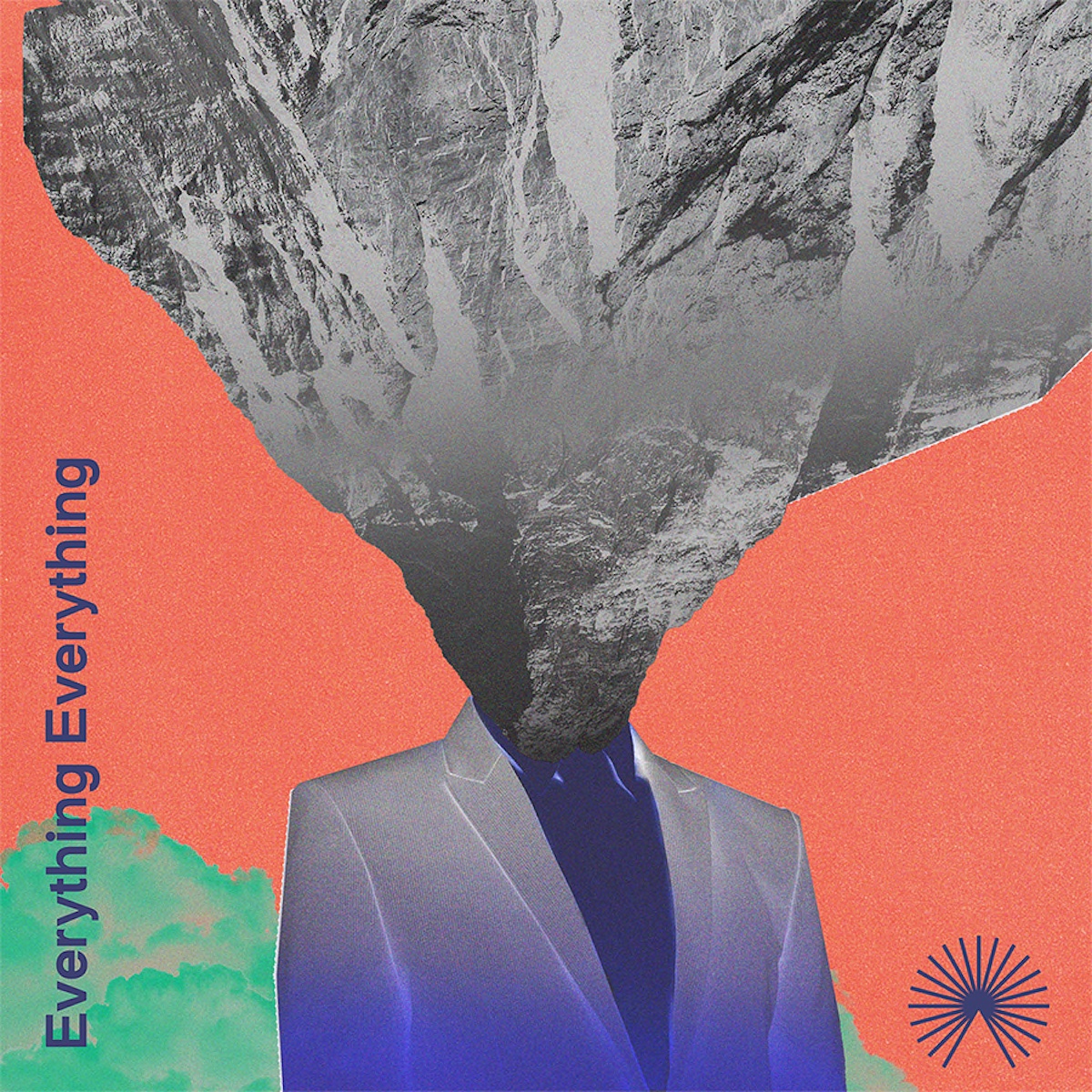
This album deals with what it means to be a “human,” which is something that has been explored for centuries but has gotten harder to define as technology has infiltrated our everyday lives. What do you think are the best ways to connect with other people?
Jonathan Higgins: Sitting round a fire, the oldest one, it’s always being the best one, but if you can’t do that, then face-to-face place with breathable air is probably the next best thing. And obviously you can’t always do that, but doing what we’re doing now is okay.
A lot of songwriters seem to slow down as their careers progress, but you all are as prolific as ever, perhaps even more so now. Where do you find the creative energy (and literal energy) to keep creating such thought-provoking and high-intensity albums?
Jonathan Higgins: Well, I don’t have kids, so I’ve got all the energy I ever had, and a lot of my job is sitting down, so to be honest, I could use up more of my energy. In fact, a lot of my songs are about the fact that I don’t use my energy, don’t use my body. So I’ve never had a problem with that. We don’t really get, well, I don’t really get drained of juice because I don’t think making an album is very difficult. Really. We’ve done it seven times and making another one doesn’t sound difficult either. Making a good album is quite hard though.
You said it's not very physical, but that music video for Cold Reactor, you guys are out there in the cold and that looked pretty physical.
Jonathan Higgins: Well, that was a big day. We actually made five music videos that day.
Oh my god.
Jonathan Higgins: Yeah, we did all the whole album’s worth in one day, and there was a big storm that was coming into the Slate Mine, where we were. So that had a bit of a hard limit on it in terms of when we could be there. We were about to die, so that made it kind of fun.

Manchester is a modestly sized city in comparison to many other major cities in the world, yet some of the biggest and best bands of the last half-century have formed there. What do you think it is about Manchester that makes it such a hot-spot for artists?
Jonathan Higgins: It rains all the time. There’s lots and lots of venues that are good, and I think there’s good unis, so there’s good students starting bands, but there’s also this culture of music that’s already, what, forty years old, and I think people go there with the intention of being involved in music, whereas you wouldn’t get that in a lot of cities. I mean, I’m one of those people. I’m not really from Manchester, and I went there to start a band. I knew that was a place where bands could exist. It’s not like a fantastical idea that you might start a band, whereas there’s plenty of places you can go and no one will join your band. Manchester’s always been good for that. I think it self perpetuates really. Now we’ve got this culture and we’ve got this history. Then it generates more good bands.
You all have accomplished a ton in your tenure as a group. Is there anything you still hope to accomplish in your musical career?
Jonathan Higgins: Career? Oh yeah, definitely. We want a number one album. We want to headline Glastonbury Asbury, all the things that a band could ever want. I feel like we’ve achieved 1% of it, 8% of it. So yeah, you name it. I’d love to have a whole new chapter of the band.
— —
:: stream/purchase Mountainhead here ::
:: connect with Everything Everything here ::
— — — —

Connect to Everything Everything on
Facebook, Twitter, Instagram
Discover new music on Atwood Magazine
© Steve Gullick
:: Stream Everything Everything ::

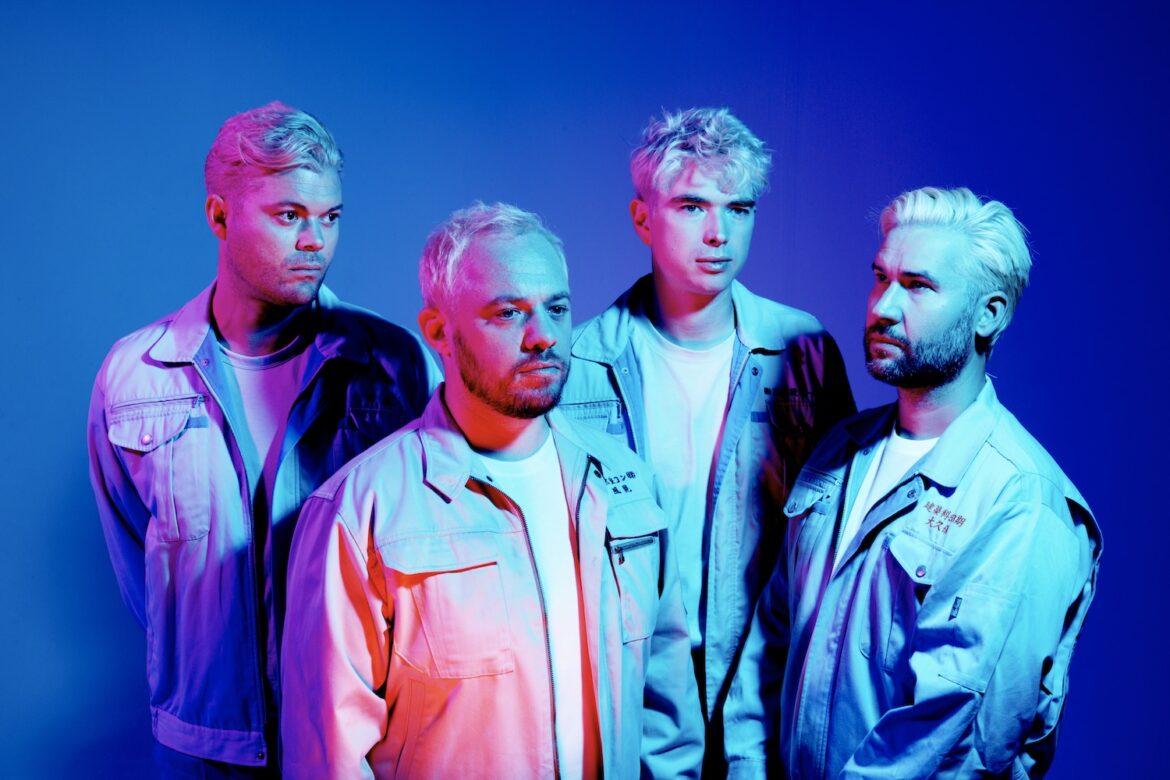
 © Steve Gullick
© Steve Gullick